Thrift Treasure: Papayoo Card Game
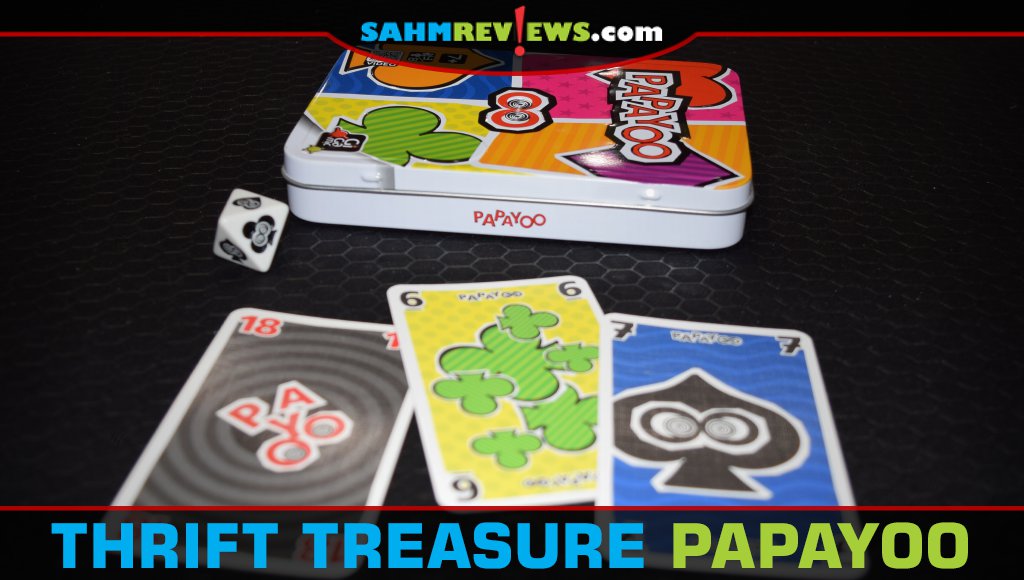
A few weeks ago, I was telling you about the Ciao! card game I found at Geekway to the West’s annual flea market. It was only $1 and came in a sturdy tin box. What I didn’t mention was that it wasn’t the only bargain of that type I grabbed from the same vendor. I also purchased Papayoo, another tin-housed card game by the same publisher, Gigamic.
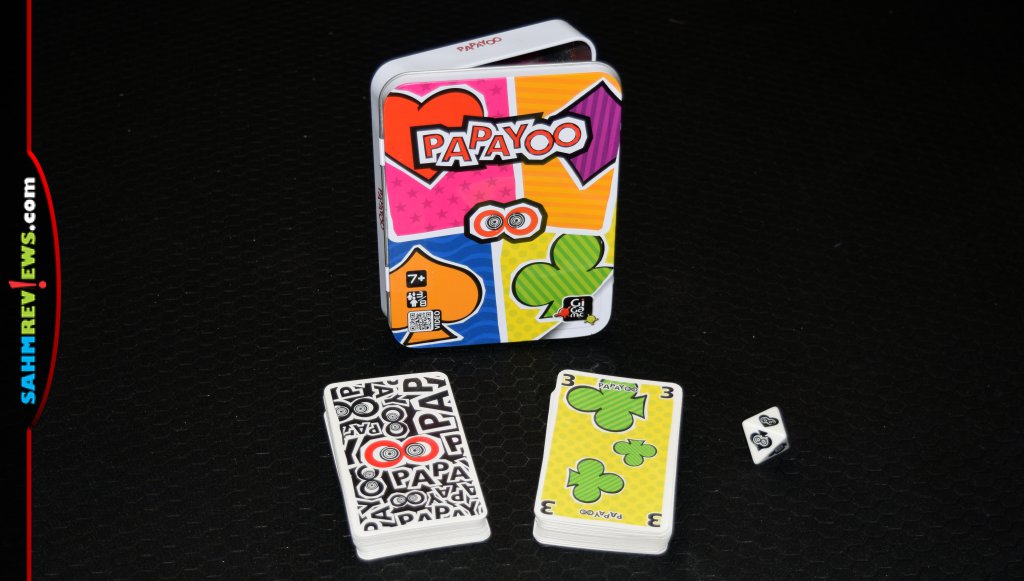
Papayoo is another card game in a lengthy line of Hearts or Spades variations. However, this example manages to do it without the use of a trump suit. Instead, the dealer rolls a die to determine which suit will become a penalty at the end of a round.
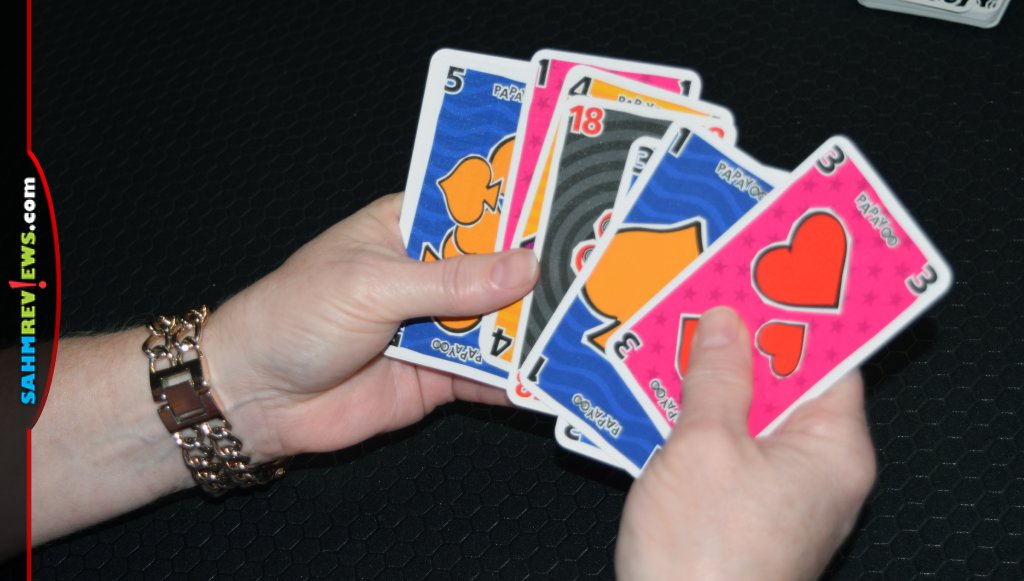
As a group, players decide how many rounds to play in total, and is typically equal to the number of players. To set up for a round, shuffle the deck of sixty oversized cards and deal them out evenly to all players. The rulebook includes special rules for seven or eight players to make the hands equal. All players will look at their cards and pass several to the player on their left, according to a grid in the rulebook. Next, the dealer rolls the included custom D8 die to determine the “Papayoo” suit. Whatever the result, the “7” card from that suit becomes the “Papayoo” for the round and is worth forty points.
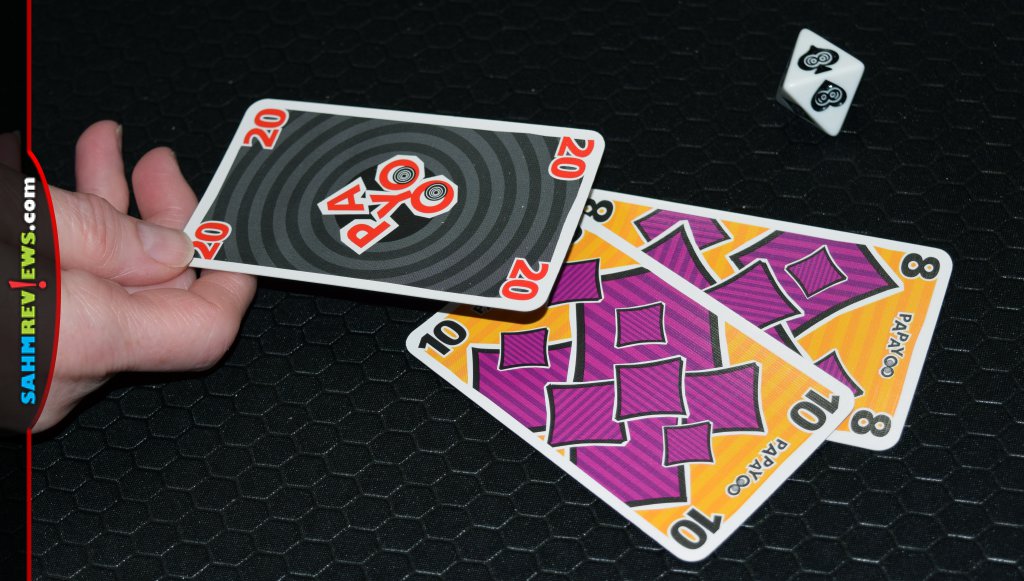
The dealer begins the round by playing any card to the center of the table. Then, other players take turns playing clockwise and following suit if they can. If a player doesn’t have a card of the starting suit, they may play any other card. Suits include standard hearts, spades, diamonds, and clubs, along with a fifth, Payoo. All suits have the same numbers: one through twenty.
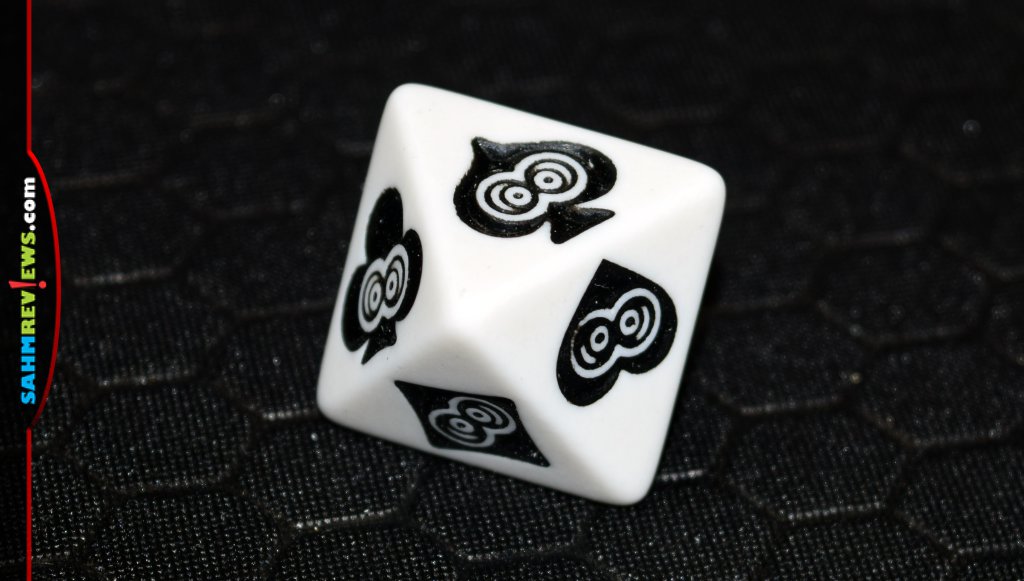
After each person has played one card, the person with the highest valued card of the lead suit wins the trick. The object of Papayoo is to have low score at the end of the game. You do not want to win tricks if they have any of the Payoo suit or the penalizing Papayoo card.
Eventually a round ends when all players are out of cards. Players add up the values of any Payoo suited cards they collected. The person who ended up with the Papayoo card receives an additional forty. Of course, subsequent rounds are played in the same manner. The responsibility of being dealer then rotates clockwise. Tally up the points for players at the end of each round, and whomever has the lowest overall total wins Papayoo!
Papayoo is no longer in print and seems to be a bit hard to find online. At the time of this article, eBay shows only one copy offered. Maybe you’ll have some luck by searching at a local convention’s flea market! In any event, the game is certainly worth the $1 we paid!
What game convention is most local to you?


